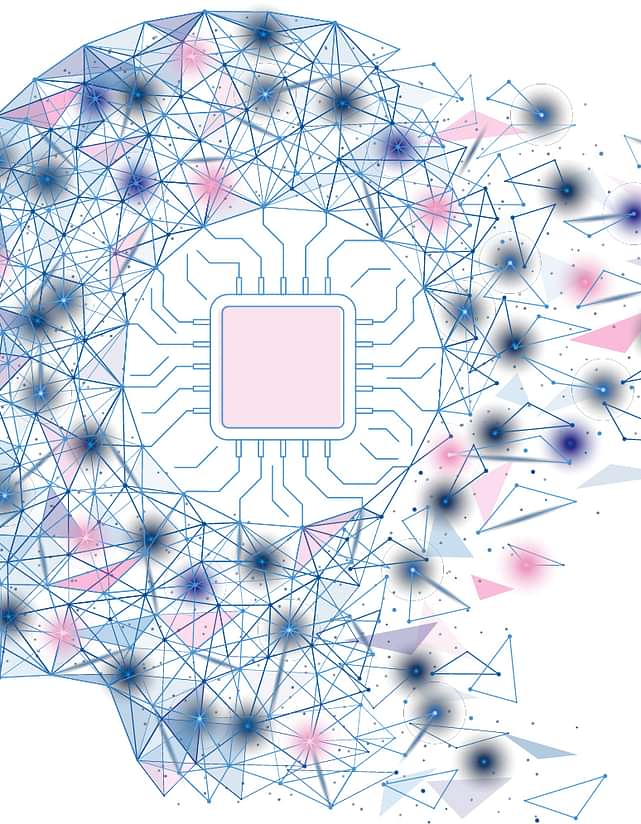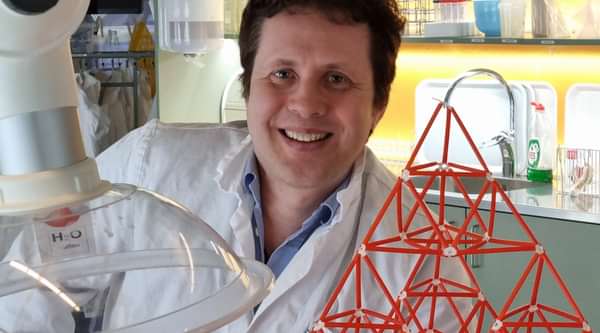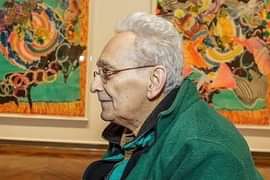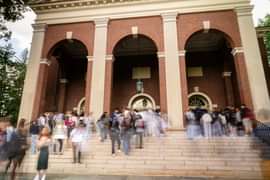
August 01, 2023
Artificial intelligence and our future
Technological time saver or a danger to humanity? The jury is still out on this important issue.by Allyson Irish
In 1984’s hit action movie The Terminator, artificial intelligence (AI) is represented by Skynet, a hostile neural network that has gained self-awareness and attempts to wipe out humankind. A scary proposition for sure, and one that has been repeated as a trope in literature, art, and theater. Over the past decade, AI has become a helpful and regular part of our everyday lives, from digital voice assistants to banking and travel aides. What can we expect next?
This is precisely what Erik Campano ’95 has been studying for the better part of the past decade, starting with his master’s thesis on the ethics of artificial intelligence in emergency medicine.
“We’re just at the beginning of the AI revolution,” says Campano “and already we see practical places where AI is going to make a huge difference.”
Campano has taught classes on AI in society at Umeå University in Sweden and is a member of an international coalition of researchers considering the impact of AI on all aspects of humanity. He says there are many positive applications of the technology, such as enabling medical clinicians to double-check their assessments in real time.
“In emergency medicine, AI is making a big difference in situations where patients come in with unspecified chest pain,” says Campano. “It’s a tricky puzzle for clinicians to figure this out because there are so many possibilities, and they can only get so much data from the patient. AI systems can take in lots of variables and make a diagnosis much more quickly and correctly.”
What does this mean for students? If a machine can do this for us, then why be a student? What is the intrinsic value of learning? I think it is important to have explicit conversations with our students so they understand what is expected of them and how they may be able to use these tools effectively.
”On the flip side, there are also potential dangers with AI, including the possibility of data bias.
“If you’re going to train a machine based on a whole bunch of data, that data set has to be a fair and comprehensive sample of the phenomenon that you’re trying to understand. Campano acknowledges that, “unfortunately, we have many examples of biased data sets.”
Data gathering and analysis are two ways in which Nicholas Zufelt, a PA instructor in mathematics, statistics, and computer science, believes AI and ChatGPT can benefit students and augment teaching. Although there are some who raise concerns about the potential increase in plagiarism and students using these tools to gain an unfair advantage, Zufelt is optimistic.
“Every teacher has their own philosophy around the skills and content knowledge that students need to have when they leave the classroom,” Zufelt says. “We should be looking at the way those skills do or do not overlap with AI and how we can help our students become better problem solvers.”
Zufelt and Kiran Bhardwaj, instructor in philosophy and religious studies, are both Tang Institute Fellows studying the relationship between ethics and computer science. Zufelt not only accepts the introduction of AI in education, but also talks about it regularly with students and has even included AI as part of his class. Last December, just one month after ChatGPT had been introduced, he led a lesson investigating code written and annotated by AI.
“And then we talked about it as a class,” Zufelt says. “What does this mean for you as students? If a machine can do this for us, then why be a student? What is the intrinsic value of learning? I think it is important to have explicit conversations with our students so they understand what is expected of them and how they may be able to use these tools effectively.”
For now, the understanding, application, and regulation of AI is still “a bit like the Wild West,” Zufelt says. Campano agrees. There are many aspects and implications of AI that we have yet to fully grasp.
 Erik Campano '95 is a researcher who has been studying artificial intelligence for nearly a decade.
Erik Campano '95 is a researcher who has been studying artificial intelligence for nearly a decade.
“I do think,” says Campano, “that within our lifetimes we’re going to have to start asking, ‘Where is the boundary between the human brain and the technology that the human brain employs all the time?’





